an excerpt from
Silent Witness
by Rebecca Forster
Copyright © 2014 by Rebecca Forster and published here with her permission
Prologue
He shot the naked woman at nine thirty in the morning; the naked man was in his sights at nine forty-five.
Three more shots: the front door and address, the woman’s car nestled in the shadows of an Acacia tree, the man’s car parked in front of the house – as subtle a statement as a dog pissing to mark its territory. The camera started to whir. Archer decided he had enough to satisfy his client that the missus wasn’t exactly waiting with bated breath for him to high tail it home.
Archer reloaded and stashed the exposed film in his pocket then let his head fall back against the Hummer’s seat. Cradling the camera in his lap, Archer felt his body go heavy as his eyes closed. He was tired to the bone and not because he had another couple of hours to wait before Don Juan decided to pack up his piece and take his leave. This tired was in Archer’s soul; this tired crept way deep into that heart muscle and made it hard to pump enough blood to keep him going.
He moved in the seat, put one leg up and tried to stretch it out. There wasn’t a comfortable place for a man his size even in this hunk of Hummer metal; there wasn’t a comfortable place in his mind for the thoughts that had been dogging him for days.
He hated this gig, spying on wayward wives. No self-respecting cop would be doing this kind of work even if the wronged husband were paying big bucks. But then Archer wasn’t a self-respecting cop anymore. He was a part-time photographer, a retired detective, a freelance investigator and a man who was running on empty when it came to making ends meet this month. And then there was the anniversary.
He didn’t want to think about that either, but it was impossible to clear his mind when California autumn had come again, a carbon copy of a day Archer would just as soon not remember. It had been sunny like today: bright sky blue up high, navy in the deep sea. A nip in the day air. Cold at night. Lexi, his wife, was sick. And then there was Tim. God, he hated thinking about it. But on a day like this, with too much time on his hands, it couldn’t be helped.
Archer stirred and held the camera in the crook of one arm like a child. His other one was bent against the door so he could rest his head in his upturned hand. He moved his mind like he moved his body, adjusting, settling in with another thought until he found a good place where it could rest.
Josie.
Always Josie. The woman who saved him from insanity after Lexi died. They’d hit a little rough patch lately but even that didn’t keep the thought of her from putting his mind in a good place. Sleep was coming. What was happening in the house was just a job. The other was just a memory. Josie was real. Josie was . . .
Archer didn’t have the next second to put a word to what Josie meant to him. The door of the Hummer was ripped open, almost off its hinges. Archer fell out first, the camera right after. Off balance already, he was defenseless against the huge hands that grappled and grasped at his shoulders and the ferocity of the man who threw him onto the asphalt and knelt on his back.
“Jesus Christ. . .” Archer barked just before the breath was knocked out of him.
“Shut up.” The man atop him growled, dug his knee into Archer’s back, and took hold of his hair.
Archer grunted. Shit, he was getting old. The guy in the house not only made him, he got the drop on him. Archer ran through what he knew: the guy was a suit, one seventy tops, didn’t work out. He should be able to flick this little shit off with a deep breath.
Hands flat on the ground, Archer tried to do just that but as he pushed himself off the pavement he had another surprise. It wasn’t the guy in the house at all. The man on his back was big, he was heavy and he wasn’t alone. There were two of them.
While the first ground Archer’s face into the blacktop, the second found a home for the toe of his boot in Archer’s midsection. Archer bellowed. He curled. He tried to roll but that opened him up and this time that boot clipped the side of his face, catching the corner of his eye. The blow sent him into the arms of the first man who embraced him with an arm around his throat. Archer’s eyes rolled back in his head. Jesus that hurt. His eyelids fluttered. One still worked right. He looked up and stopped struggling.
The guy who had him in a headlock knew what he was doing. If Archer moved another inch and the man adjusted his grip, Archer’s neck would snap. As it was, the guy was doing a fine job of making sure Archer was finding it damn hard to breathe.
His eyes rolled again as a pain shot straight through his temple and embedded itself behind his ear. He tried to focus, needing to see at least one of them if he was going to identify them when – if – he got out of this mess. They could have the car. No car was worth dying for. But he couldn’t tell them to take it if he couldn’t speak and he couldn’t identify them if he could barely see. There was just the vaguest impression of blue eyes, a clean-shaven face, and a checked shirt. Archer’s thoughts undulated with each new wave of pain. Connections were made then broken and made again like a faulty wire. The one that stuck made sense: these guys didn’t want his car but they sure as hell wanted something. Just as the chokehold king tightened his grip, and his friend took another swipe at Archer’s ribs, one of them offered a clue.
“You asshole. Thought you got away with it, didn’t you?”
That was not a helpful hint.
Roger McEntyre took the call at ten thirty-five without benefit of a secretary. Didn’t need one; didn’t want one. The kind of work he did wasn’t dependent on memos and messages. He kept important information in his head. If he shared that information, it was because he wanted to. If Roger wasn’t in his office, couldn’t be raised on his cell, had not told his colleagues where to contact him then he meant not to be found. That’s what a company guy did. He delivered what the company needed and was rewarded with the knowledge that he was the best in the business. Everyone had tried to hire him away: Disneyland, Magic Mountain, Knott’s Berry Farm but a company man was loyal. Roger was loyal to Pacific Park, the oldest amusement park in California, loyal to the man who had given his father a job when no one else would, loyal to the man who treated him like a son.
Now he was about to deliver a piece of good news the company needed bad. He was delivering it before schedule and that made him proud, though it was difficult to tell. Roger’s smile was hidden by the walrus mustache he had grown the minute he left the service. That was a pity because he actually had a nice, almost boyish grin when he thought to use it.
So he left his office – a small, spare space off a long corridor – and passed the two offices where his colleagues worked. One ex-FBI, the other a product of New York’s finest. Roger, himself, was Special Forces. Honorable discharge. Fine training.
He walked through the reception area of building three and gave the girl at the desk an almost imperceptible nod as he passed. She was a cute kid and Roger doubted she knew his name. Given her expression, he imagined she wasn’t even sure he worked there. That’s the kind of man he was. He walked like he knew where he was going and didn’t mess where he wasn’t supposed to. If he had been another kind of man that little girl would have been open season. She didn’t know how lucky she was.
Roger pushed through the smoke glass doors and snapped his sunglasses on before the first ray of light had a chance to make him wince. Thanks to the year ‘round school schedules the park was still busy even at the end of October. Halloween decorations were everywhere. On the 31st the park would be wall-to-wall kids causing all sorts of problems. Today there were none.
Roger dodged a couple of teenagers who weren’t looking where they were going, stopped long enough to oblige a woman who asked him to take a picture of her family, and noted that the paint was peeling on the door of the men’s bathroom near the park entrance.
He took a sharp right, ducked under a velvet rope and walked through a real door hidden in a fake rock. The air-conditioning hit him hard with an annoyingly prickly cold. Isaac liked it that way. That was strange for an old guy. Usually old guys liked things warm. Down a small hallway he went, through another glass door, across another reception area and into the executive suite. The receptionist there was of a different caliber all together. She was slick. Expensive haircut. Older. Had too much style to be stuck behind the scenes.
“Mary.” Roger nodded as he went by her.
“He’s waiting,” she said.
“Yes.”
Roger opened one of the double doors just far enough to slip through then stood inside the office, arms at his side, posture perfect as always. Isaac’s office was nice. Very adult, very sophisticated considering the kind of business they were in.
The silver haired man behind the mahogany desk was on the phone. That call wasn’t as important as Roger. The receiver went to the cradle, and Isaac Hawkins’ hand held onto it as if he were bracing for bad news. Roger’s mustache twitched. He didn’t want to get the old man’s hopes up so he made his report without elaboration.
“They got him. Everything’s moving forward.”
“Then it was true.”
Isaac’s shoulders slumped ever so slightly in his relief. Roger moved closer to the desk just in case he was needed. Isaac looked ten years younger than his years but even that would have been old.
“The District Attorney made the decision,” Roger answered as Isaac got up from his desk. “We just gave them what we had.”
Isaac Hawkins walked up to Roger. He took him by the shoulders, looked into his face and then drew him forward.
“Your father would have been proud. Thank you, Roger.”
“Don’t worry, Isaac.”
“I’m glad we did the right thing,” the old man said before he sat down again. “Let me know how it goes. You’ll do that, won’t you?”
“I will.”
Roger turned away; satisfied he had done his work well. At least that was one monkey off the old guy’s back – one that should never have been there in the first place. Not after all these years.
Of the five attorneys, five secretaries, two paralegals, receptionist, mailroom boy, suite of offices in Brentwood and shark tank, Jude Getts was proudest of the shark tank. It was a cliché, sure, but in his case it was a cliché that worked. Getts & Associates was not the largest law firm but it was the leanest, most voracious personal injury firm in Los Angeles. Lose a leg? A lung? A life? Jude’s associates put a price tag on everything and collected with amazing regularity. They didn’t as much negotiate with defendants as hold them hostage until they coughed up the big bucks; they didn’t try a case as much as flay it, peeling back the skin of it slowly, painfully, exquisitely. And, of all the attorneys in the firm, Jude Getts was the best.
Bright eyed, boyish, his blond tipped hair waved back from a wide, clear brow. Jude was tall but not too tall, dramatic without being theatrical, a master of the touch, the look, the smile. He had timing whether it was offered during closing arguments or a rare intimate moment with a woman chosen for the length of her legs or the look of her face. But what made Jude a really, really good personal injury attorney was that he loved a challenge more than anything else. He rejoiced in it. A challenge made his heart flutter, made him smile wider, laugh heartier, and made his work even more impeccable. What he was hearing on the radio as he drove to meet his client was making that heart of his feel like an aviary just before an earthquake.
Jude passed the keys to his car to the valet and said ‘keep it close’ before he bounded into the foyer of the Napa Valley Grill, past the hostess who was gorgeous but rated only his most radiant, thoughtless, everyday smile. He gave his drink order to his favorite waiter with a touch to the man’s arm, a tip of his head that indicated Jude really didn’t think of him as a waiter at all but as a friend. The drink arrived at the table just as Jude was sliding onto the chair, giving his very best professional smile to the man across the table.
“Colin,” Jude said as he snapped the heavy white napkin and laid it across his lap.
“Jude,” the other man nodded. He already had a drink. It was almost gone.
“They make a good drink here, Colin. Damn good drink.”
“I’ve had two,” the client noted.
Colin Wren was not a man who really enjoyed life, and insisting he take time to smell the roses, gave Jude an unprecedented kick in the ass. But while he was laughing on the inside, the outside was always respectful. Colin was, after all, the client.
“I’m sorry I kept you waiting but something came to my attention. It’s definitely going to change the course of our business, Colin.”
“I don’t want anything to change the course of our business,” Colin said quietly and finished his second drink. “I’ve waited too long.”
The eyes that looked at Jude from behind wire rim glasses were soft brown, gentle looking. They were the eyes of a priest. Colin Wren was not a priest, nor was he particularly kindly or likeable. An opportunity brought him to Jude, but every once in a while Jude had the sneaking suspicion the matter at hand was more than business.
“Well, Colin, I’m not sure you’ve got a choice. It seems our friends at Pacific Park have made a brilliant move.” Jude took a drink, put his glass down and crossed his arms on the table. “They handed the problem off to the district attorney and suddenly we’re talking a criminal matter here. Until John Cooper does what he’s going to do, we don’t have a snowball’s chance in hell of collecting on a civil action.” Jude picked up his glass again. “How’s that for a surprise, Colin?”
�Chapter 1
“Ms. Bates,” Mrs. Crawford said. “I’m going to have to be brutally honest with you. Some parents are concerned about Hannah enrolling at Mira Costa High School. Ms. Bates?”
Startled, Josie shifted in her seat. She’d been watching Hannah through the little window in the door of the principal’s office. Hannah’s head was down as she dutifully filled out registration forms. She was already behind, starting more than a month late because of the trial. There was so much against her, not the least of which was the problems in her gorgeous head, that Josie couldn’t have felt more anxious if she was Hannah’s mother. Now she forced herself to look away, giving her attention to the principal, Mrs. Crawford.
“I don’t know why they would be concerned. Hannah didn’t kill Justice Rayburn,” Josie said.
“But they remember the trial. There was a great deal of publicity.”
“And there was even more when Hannah’s mother was convicted of the crime. Now her mother is in jail and all ties to her have been severed. If anyone is unaware of the outcome of that trial, I’ll be more than happy to fill them in.”
“Lawyers and educators both know that facts have nothing to do with emotional reality.” Mrs. Crawford smiled. “I doubt the reality of gossip, innuendo and curiosity on the part of the students or their parents is going to surprise you. What may surprise you are the consequences of all that. You don’t have children, do you?”
Josie shook her head, “I’m not married.”
Mrs. Crawford nodded. The world was a different place for someone without children. For those with children the world was a lunar landscape without gravity, full of potholes and insurmountable mountain rises in the distance. Even those born to be parents had a tough time navigating the terrain. Mrs. Crawford gave Josie Baylor-Bates a fifty-fifty chance of surviving unscathed.
“Then you haven’t had the pleasure of dealing,” she chuckled before sliding into seriousness. “Parents will be wary of friendships formed with Hannah. They won’t want her at their houses ‘just in case’ she’s a bad influence. Other students may try to take her on to see how tough she is. They’ll want to see how far they can push her. . . .” Mrs. Crawford hesitated. “They may want to see if she really doesn’t feel pain the way the papers reported.”
“Since you are aware of what might happen, I assume you’ll take every precaution to see that Hannah’s safe,” Josie suggested coolly, not unaware that Mrs. Crawford was trying to help.
“I’d like to be able to promise you that, but I can’t.” Mrs. Crawford sat back. “We have a lot of children who are targets of their peers for any number of reasons. Things have changed since you were in high school. Kids can be targeted because of their sexual orientation, their IQ or just the way they look. We do the best we can, but Hannah is a little different. She’s been to jail, she pled guilty to a murder. People will wonder; kids will get in her face.”
“I’m assuming this is leading somewhere, so why don’t we get to the bottom line,” Josie suggested, trying not to worry that the morning was flying by and she still had work to do. How real parents did this – sometimes with more than one kid – was beyond her.
Mrs. Crawford took a minute to gaze through the small window. She lifted her chin toward Hannah. When she spoke, her tone had softened and her eyes were back on Josie.
“Off the record, I think Hannah is a beautiful, smart, well-spoken young woman. On top of that, I think she’s incredibly brave and bizarrely selfless. I don’t think my kids would have gone to jail for me.” She tipped her head and held up her hands as if helpless. “But this is a big school, Ms. Bates, and we draw from three different districts. Hannah might do better in a smaller venue, a place where the student body is more easily monitored and the administration could better control the reaction to Hannah’s notoriety. Chadwick might be an option.”
“No, Chadwick isn’t an option. I’ve spoken to Hannah about that. She doesn’t want to go to a rich school. She’s had enough of rich people. She just wants to get back to school.” Josie glanced at her charge quickly. “As for the administration, I don’t think you’re going to have to control anything. Hannah is capable of doing that all by herself.”
Mrs. Crawford nodded. She picked up a pen and pulled a sheet of paper toward her.
“Okay, then. You’ve made your decision. I just wanted to make sure we were on the same page. Funding cuts have left us with only one psychologist on this campus. If Hannah needs help, she’ll have to understand she isn’t the only one who does.”
“No problem. Hannah’s trial isn’t going to be the talk forever. She’ll deal with things and, if she can’t, we’ll know sooner than later.”
“I hope so.”
“Take my word for it, we will” Josie said, thinking one look at Hannah’s arms was all it would take to know if Hannah was heading off the deep end. Josie shivered, remembering the first time she had seen the ugly roadmap of scars on Hannah’s arms. It was one thing for a child to be tortured by an adult, another to know that child had so much pain she cut herself to be rid of it.
“All right. I guess we’re clear.” Mrs. Crawford put on her glasses, sat up and pulled a file toward her. Josie paid attention. “You’re Hannah’s legal guardian?”
“I am. Her mother signed the papers last week.”
“And will Hannah need a parking permit?”
Josie shook her head. “Not yet. Her license was revoked. We’re going to be getting it back, but for now I’ll be picking her up. I’d like to keep a close eye on her for at least the first couple of months.”
Mrs. Crawford made a note, nodding her appreciation of Josie’s concern.
“I see that Hannah will have to miss sixth period every other Tuesday?” The principal’s eyes flickered up.
“She has an appointment with her psychologist. I figured since that was the PE period it would be better than missing math,” Josie answered.
“I imagine she’ll be making up her exercise since you live on the Strand. Does she run?”
Josie laughed, “No. Hannah’s artistic not athletic. I don’t think I’ll get her running anytime soon.”
“Too bad, I’d give anything to live down there. I’d walk every spare minute. Are you a runner?” Mrs. Crawford made small talk as she filled in forms and pushed them toward Josie for a signature.
“Some. Volleyball mostly.” Josie scribbled her name.
“That should have been my first guess,” Mrs. Crawford laughed. “My next guess was going to be basketball.
Josie signed the emergency contact card and pushed it back, grateful that there wasn’t going to be an extended conversation about her height.
“Well,” she said as she stacked the forms. “I think that does it. And don’t worry. We have a fine art department. I think Hannah will be a great asset.”
“Thanks.” Josie checked her watch. A bell rang. Even in the principal’s office Josie could hear the thunderous sound a couple of thousand kids made as they changed classes. It was time for her to go. She had a hearing at the pier courthouse in forty-five minutes. She got up. “So, do you need anything else?”
“Nope.” Mrs. Crawford stood up. “I’ll take Hannah around to the classrooms. I’ve arranged for one of our students to help her out for the next few days.”
“I appreciate that.”
Josie took the hand Mrs. Crawford offered. She hitched her purse and glanced at Hannah. Finished with her own paperwork, Hannah was looking right back at Josie with those clear, spring green eyes of hers. Josie smiled. Hannah was even more beautiful than the first day she saw her. The nose ring was gone. The tongue stud was gone. Her hair had grown back where the hospital had shaved it. Today she had wrapped a sky blue scarf across her brow, her long black hair fell in curls past her shoulders and her dark skin gleamed under the light that came through a high window. And Hannah’s fingers were busy. They gently touched the arm of her chair. Josie could count along with her – one, five, ten, twenty times. The doctors called her behavior obsessive/compulsive. Josie had another name for it: heartbreaking. It would end. It was already better. Hannah didn’t cut herself up any more and that was a big step in the right direction. All Josie needed to do was hang in there with that girl. Josie had saved her once. It was time to finish the job. Josie dug in her purse, turned around again and handed the principal a piece of paper.
“Look, I know this is a lot to ask, but Hannah’s terrified of being left or forgotten. If there’s ever a problem, that’s a list of friends you can call. Family really. If I ever get hung up and can’t get to a phone to call, I’d appreciate you calling anyone on that list. One of them will come get her. I’ll talk to Hannah tonight and tell her to come straight to you if I’m late.”
Mrs. Crawford looked at the list and then put it under the picture of her own family. It wouldn’t be forgotten.
“That’s something I can personally promise. So,” she put her hands together. “I guess we both better get to work.”
Hannah didn’t look back as she walked down the now quiet halls with Mrs. Crawford but Josie couldn’t take her eyes off the girl. She wanted to go with Hannah just to make sure she was fine. That was something a mother would do – just not something Hannah or Josie’s mothers had done. But Josie wasn’t a mother. She had taken in Hannah because there was no one else. That decision had changed Josie’s life and she wasn’t quite sure it was for the better. Archer would say it was for the worse and Josie thought about that as she walked across the campus, looked both ways before she crossed the street and tossed her purse and jacket in the back of her Jeep Wrangler. She swung herself into the seat and a second later her cell phone rang.
She checked her watch. Too early for the court to be calling to find out where she was on that settlement hearing, and the new client didn’t have her cell number. She was freelancing for Faye so no one expected her at the office. Burt wasn’t in the restaurant that day. Billy Zuni? Hopefully he’d be in school. Whoever it was, it couldn’t be all that important. It kept ringing as Josie rolled up her shirtsleeves and reached in back for her baseball cap.
“Oh, hell,” she muttered. Curiosity got the better of her. She grabbed for the phone, pushed the button. “Bates.”
Less than a minute later Josie was peeling down the street laying rubber as she headed to the freeway that would take her downtown to Parker Center and the detention cell where Archer was being held on suspicion of murder.
�Chapter 2
Josie was twenty-seven when the call came that her father was ill. No, that wasn’t exactly right. A hospital administrator called and said her father had a heart attack. There was a difference between saying someone’s ill and saying they’ve had a heart attack. Josie didn’t care what the difference was. Her dad was hurting. He needed her. She took off in the middle of a trial and it almost ruined her career. The judicial system had ways to deal with personal emergencies in order to side-step sanctions. Josie didn’t have time to screw around with protocol.
She left Los Angeles on the next flight out to Hawaii. It was two a.m. For five hours Josie looked out the window onto a very dark night. She didn’t read or eat; she didn’t watch the movie or sleep. Above all, Josie Baylor-Bates did not speculate about what she was going to find when she reached her destination. Her Marine father had taught her better than that. She knew the basics. When she arrived in Hawaii Josie would kick into high gear and gather information, assess the situation, speak to the experts and make decisions to insure her father’s survival. Tears, fears, hope and prayers – those emotions were always kept behind the lines. They were an indulgence that Josie seldom allowed herself – until she arrived too late to help him. But that was the last time she had cried, the last time she had prayed. She knew he wouldn’t have minded. It was forgivable when a good soldier passed. But that was a long time ago and she didn’t allow herself to succumb to fears or tears now as she parked in the lot next to the fortress that was Parker Center, headquarters of the LAPD.
No stranger to the place, she pushed through the doors, handed over her purse to be inspected, stated her business and waited for the officer who had given her a head’s up about Archer. She didn’t wait long.
“Josie Bates?”
“Yep.”
She twirled around. Josie had two inches on him, but the officer had a hundred and fifty pounds on Josie easy. He still wore the uniform despite his age and his girth. If he had more than a year to retirement Josie would be amazed.
“Newell,” he said and they shook hands. “I saw them bring Archer in. Didn’t get a chance to talk to him, but I know you two worked on the Rayburn thing together so I thought I’d give you a call.”
Newell steered her toward a corner. He wasn’t talking out of school but he didn’t exactly want to broadcast his involvement in this matter either.
“Why didn’t he call himself?” Josie asked quietly, respecting his position.
“I don’t know exactly what’s going down because we didn’t pop him. It would have taken an act of God to make anyone of us make the collar like that on one of our own,” Newell assured her. “DA investigators made the arrest and brought him here for booking.”
“Did they refuse him a call?”
Newell shrugged.
“Don’t know. I’m sitting the desk. They walked him right by me. It’s all pretty hush-hush, but I recognized Archer right away. We were in the academy together a hundred years ago. Never got close, but you don’t forget a guy like Archer.”
“The District Attorney’s investigators?” Josie prodded.
“Oh, yeah. I don’t know if they refused him. You know John Cooper? He’s one DA that plays things close to the vest. If he didn’t let us in on this then he’s looking for the glory – or something else. . .”
“Like what?” Josie pushed for information. But he took her arm and pulled her further aside as two officers lingered in the lobby.
“Maybe they wanted to clean him up. What I saw didn’t look good. Either Archer put up a hell of a fight or these guys have it in for him, if you know what I’m saying.”
Josie nodded. She knew exactly what he was talking about. What she couldn’t fathom was what had brought Archer to this place and put him in such a condition; Archer who never ran a red light, who lived and breathed the law. Newell put his hand on her arm. She had swayed without realizing it. Her father would have narrowed his eyes at her just enough to let her know it wasn’t time to get girlie. She put her hand over his.
“Thanks for the call. I’ll take it from here,” Josie said.
“No problem. I figured he needed some help. I’d sure appreciate someone stepping in if it was me.”
“I’ll keep it to myself,” Josie assured him.
“No skin off my nose. I retire in three months.”
Josie smiled.
”Still, you went out on a limb,” she said.
“Yeah, well, Archer did a friend of mine a good turn a few years ago. My buddy never got the chance to pay him back. This will square things.”
Newell left it at that. He paced off a few steps, assuming she’d follow but Josie had one more question.
“Newell.” She went close to him again. “Who’s the alleged victim?”
“Don’t have a name. Some kid. That’s all I know.” He shrugged. His shoulders swiveled. “So, now that you’re here, guess you want to see him.”
“Guess I do,” she muttered and followed him down the hall and to a room where Archer was sitting behind a closed door. The man standing outside that door looked less than friendly; she could only guess who was inside.
“I’m Archer’s attorney,” Josie announced. The man seemed unimpressed until she went for the door.
“We’re not done,” he said quietly, his hand clamping over hers. Josie looked at him, her blue eyes cold.
“Yeah, you are. I don’t care if the Pope sent you. You’re history until I talk to my client.” Josie took her hand from under his and pulled up to her full height.
“He didn’t call an attorney.”
“I don’t know what they teach you at the DA’s office, but you’re supposed to ask him if he wanted one before you questioned him. It’s kind of basic. Keeps your cases from being thrown out of court on a technicality.”
“And I don’t know what law school you slipped through, but you should know better than to assume. We offered. He declined,” the man shot back.
Josie stepped back, glancing through the small window in the door of the interrogation room. You didn’t have to be on top of Archer to see that this had not been an easy arrest.
“I would imagine my client didn’t have the wherewithal to understand that right. He might not have understood anything at all considering the shape he’s in. Now, unless your boss wants some very pointed, very public questions about how the District Attorney’s investigative unit does its job, I would suggest you let me in that room.”
They shared a moment, the big man and the extraordinarily tall woman with the exceedingly short hair. It wasn’t a pleasant one. When it ended Josie got her way. The man knocked with one knuckle, opened the door. His partner slipped out. Slimmer but no less arrogant, he gave Josie the once over as his friend announced ‘attorney’ with the kind of effort it took to hurl.
The two men left, sliding along the testosterone slicked hall until they were swallowed up by the bowels of Parker Center. Josie watched them go, her jaw tight, her eyes narrowed. She wasn’t concerned that they would come back. Those two would melt into the bureaucratic soup only to be fished out later and spoon-fed to a jury hungry for the particulars of this day. Those men would remember everything; Archer would remember next to nothing. Josie would have to sort it out for him.
She turned. She put one hand on the knob, the other flat against the door as she took a minute to look hard at Archer. She needed to ground herself before she spoke to him. At this instant she was an attorney, nothing more. Not a lover. Not a friend. She could not be a woman who adored – never worshipped – the ground he walked on. Josie catalogued everything she saw. The blank room. The dark table. The four chairs. Archer sitting with his legs splayed on either side of one. One arm crooked and his forehead cupped in his upturned hand. His shoulders were slumped, his other arm dangled between his legs. He was hurt, possibly broken and probably afraid.
A tremor of fear spidered out from Josie’s center, creeping into her arms, her legs, and up through her neck until her jaw was locked but her knees and hands shook uncontrollably, almost imperceptibly. Two shallow breaths through her nose and the vise around her lungs weakened. Another deep one filled them and she was ready. She pushed open the door, slipped inside and stood against it.
Archer didn’t move and he didn’t look up when he said:
“I don’t want you here, Jo.”
… Continued…
Download the entire book now to continue reading on Kindle!

by Rebecca Forster
4.5 stars – 324 reviews!!
SPECIAL KINDLE PRICE:
Just $1.99!
(Regular price: $5.99)

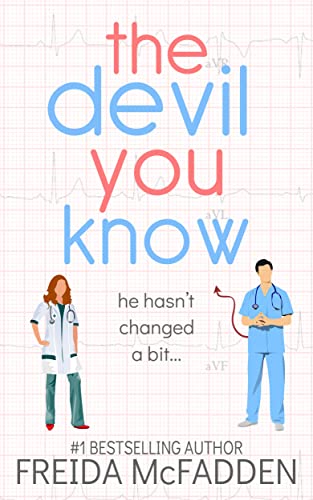
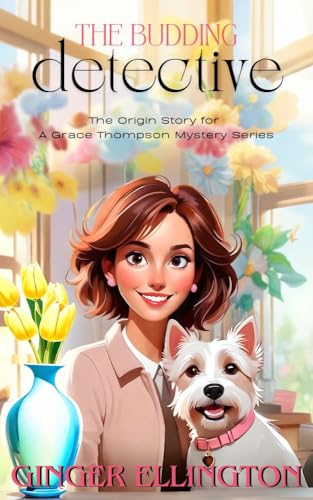
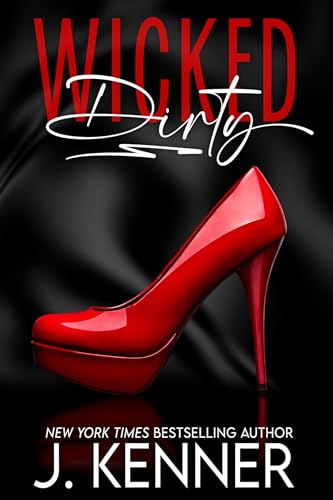

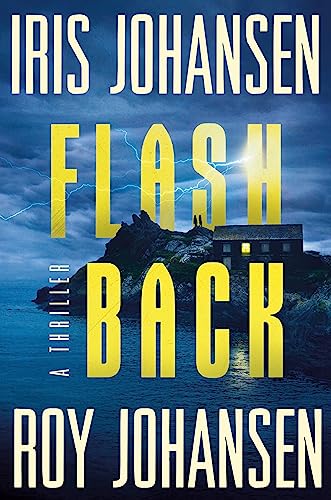

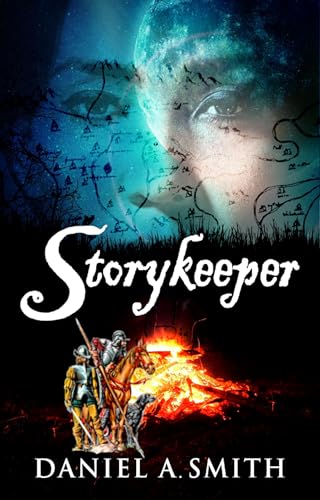
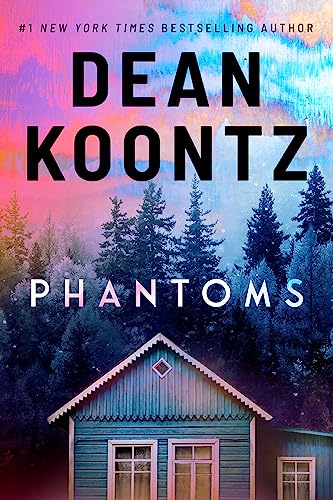
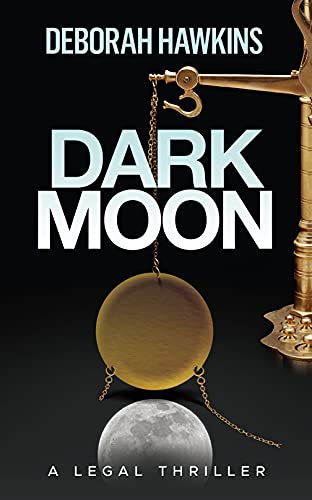
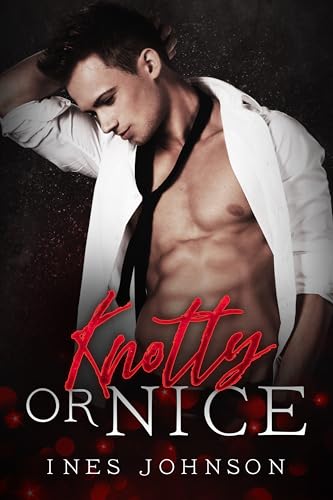
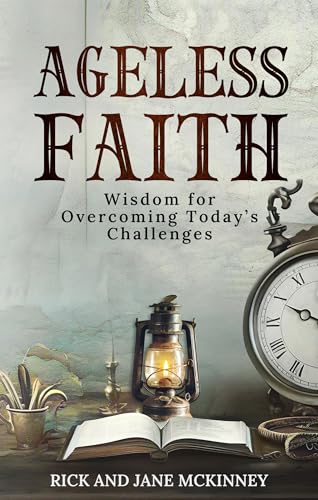

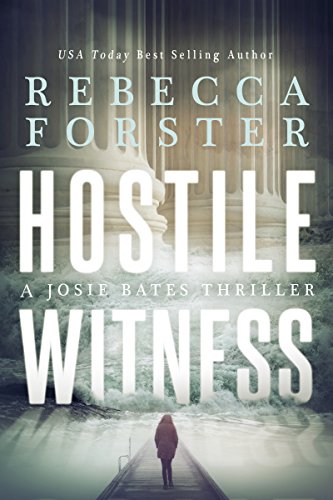

![HOSTILE WITNESS: A Josie Bates Thriller (The Witness Series Book 1) by [Forster, Rebecca]](https://images-na.ssl-images-amazon.com/images/I/515RQ6f90jL._SY346_.jpg)





